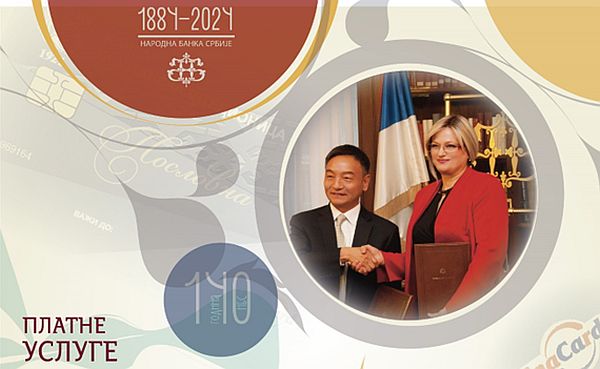The NBS Head Office Building was built from 1888 – 1890, on the basis of blueprints designed by Konstantin Jovanovic (Vienna 1849 – Zurich 1923), son to distinguished artist Anastas Jovanovic...

Stable payment system operation, rise in the number of payments and the use of m- and e-banking. The NBS takes care of, monitors and promotes the safe and stable operation of six payment systems. Through our activities, we have ensured the reliability of the operation of all payment systems, as well as the security and efficiency of execution of payment transactions in those systems. Over 386 million payments were made in payment systems operated by the NBS in 2023, which represents a 76% increase compared to the total number of transactions made in payment systems in 2013. There is a pronounced growth in payments using mobile and online banking, both in terms of the number of users and the number of transactions.
During the term of Governor Jorgovanka Tabaković, the NBS became a leader in innovative solutions in the field of payments. The NBS has proven to be one of the trailblazers in innovative payment solutions.
We introduced a modern legal framework for payment services that encourages innovation and is in line with the best European and global practice. Among the first in the world, the NBS instant payments system (IPS) was launched, enabling citizens and businesses to pay anywhere and anytime, transferring money to the recipient’s account within just a few seconds.
The struggle for a national card system has yielded many benefits for citizens. To buttress financial stability by ensuring the independence of our payment system, cost reduction and modernisation of the domestic payment card, the NBS worked strategically on developing its national card system – DinaCard.
A set of measures to protect living standards and fee transparency – payment account package with basic services.
* The latest available data at the moment of the preparation of the brochure.